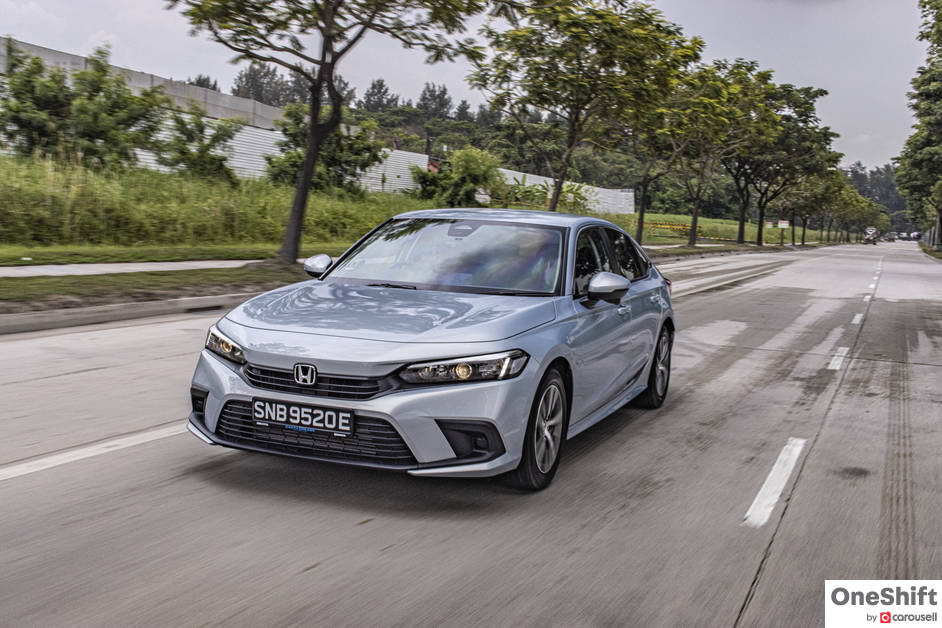Should I take a Car Loan in Singapore - How Rising Interest Rates Affect Your Car Loan
Should I take a Car Loan in Singapore? - Interest rates have been on the rise, and higher interest rates will definitely have an impact on your finances when paying for a car, with higher loan repayments and monthly payments. There are many considerations at play here including how your car financing situation will affect your credit score. Will it have an impact on home loans? Is it a good idea to take a loan? Will a larger loan amount get amplified by higher interest rates? We explore the pros and cons of taking a car loan in Singapore.

Due to the relatively high purchase price of cars in Singapore, buying a car with car financing has always been part of the conversation when it comes to car ownership. While most of us understand how car financing and auto loans can affect our credit scores when applying for other big ticket loans such as home loans, most of us still feel like it's a good idea to take up the maximum loan set out in the Monetary Authority of Singapore’s (MAS) guidelines. If you add on other liabilities in your portfolio, such as other loans and credit card payments, it adds up and can negatively affect your Total Debt Servicing Ratio (TDSR). To make matters worse, car interest rates are rising, which means that based on your total loan amount, a consumer would have to pay a higher amount of total interest over the course of the loan tenure. Do higher interest rates automatically mean that car loans are a bad idea? Read on to find out how these interest rates will affect you, as well as who should continue looking towards car loans and who should not.

Aside from the obvious financial implications where your monthly repayments will likely be higher to do interest, and how your total amount of interest paid over your loan tenure will be higher, there are other things to consider as well. For starters, you’ll want to consider if your monthly repayments can be sustained over time. Although the increase in monthly payments may be quite slight, it does add up over time, and one has to consider if that money can be put to other uses.
Due to the Rule of 78, which is a repayment calculation tool that almost all financial institutions use to calculate the repayment of loans and interest, most of the money paid back during the initial year of the loan tenure will be toward interest payments. With rising interest rates, a likely scenario is that your loan break-even point will take longer to achieve, as most of your initial loan repayments will be used to pay off the larger total amount of interest charged on your loan. For car lovers and enthusiasts, this isn’t good news, as it means that we will likely not be able to change our cars as often as selling it off too soon could incur higher than expected losses.
Lastly, rising interest rates from banks will bring the average interest rates closer to in-house rates, as in-house rates are also charged at a slight premium and are unlikely to shift as quickly as the bank interest rates. With this in mind, alternative loan terms and arrangements come into play. The mentality here is that since my bank interest rates are already quite close to in-house interest rates, one might as well bite the bullet on the interest, and attain some flexibility on their down payment quantums, which can then be used in other investment vehicles that can help offset the higher interest rate and even some of the car repayments. The best part is, this principal sum does not depreciate together with the vehicle as it gets older.

Generally speaking, structured bank-offered car loans are great for risk averse consumers who want to keep within the MAS guidelines and loan structure. Because of the mandated downpayment figures, there is little chance of a consumer ever losing so much money on a car that they wouldn’t be able to pay off their bank loan after selling their car. These types of loans also work very well for individuals who are perhaps more mature about car ownership, and are ok with keeping their cars over longer periods of time, which generally reduces any risk created by the Rule of 78. As monthly repayment on bank-structured loans are typically lower (due to a larger down payment component), car loans still work very well for individuals who have limited earning power on a month on month basis, but perhaps have a large pool of savings which the individual does not intend to utilise for any other investments.
The first group of people who should not take a car loan are people who are keen to change their car every 1 to 2 years. Under a normal loan structure, the Rule of 78 would be harshest for this group of people. A good alternative here, if one is keen to drive the latest cars all the time, is to lease a brand new car. Car leasing would also work very well for those planning for a home loan in the near future, as a car lease would not have an effect on the individual’s TDSR.
The second group of people who can afford to look at some alternatives to traditional car loans are perhaps younger individuals with high monthly earning power, but not a huge amount of savings. In such a case, adopting a more flexible down payment structure can help minimise the amount of upfront cash that depreciates together with the car over time. If the individual is also savvy with investments, and can utilise the principal sum in a separate investment vehicle, they can then actually offset some portion of their interest or even their loan amount.
Credits:


Get the Best Price for your used car
from 500+ dealers in 24 hours

- Convenient and Hassle-Free
- Consumer Protection
Transparent Process
With No Obligation








